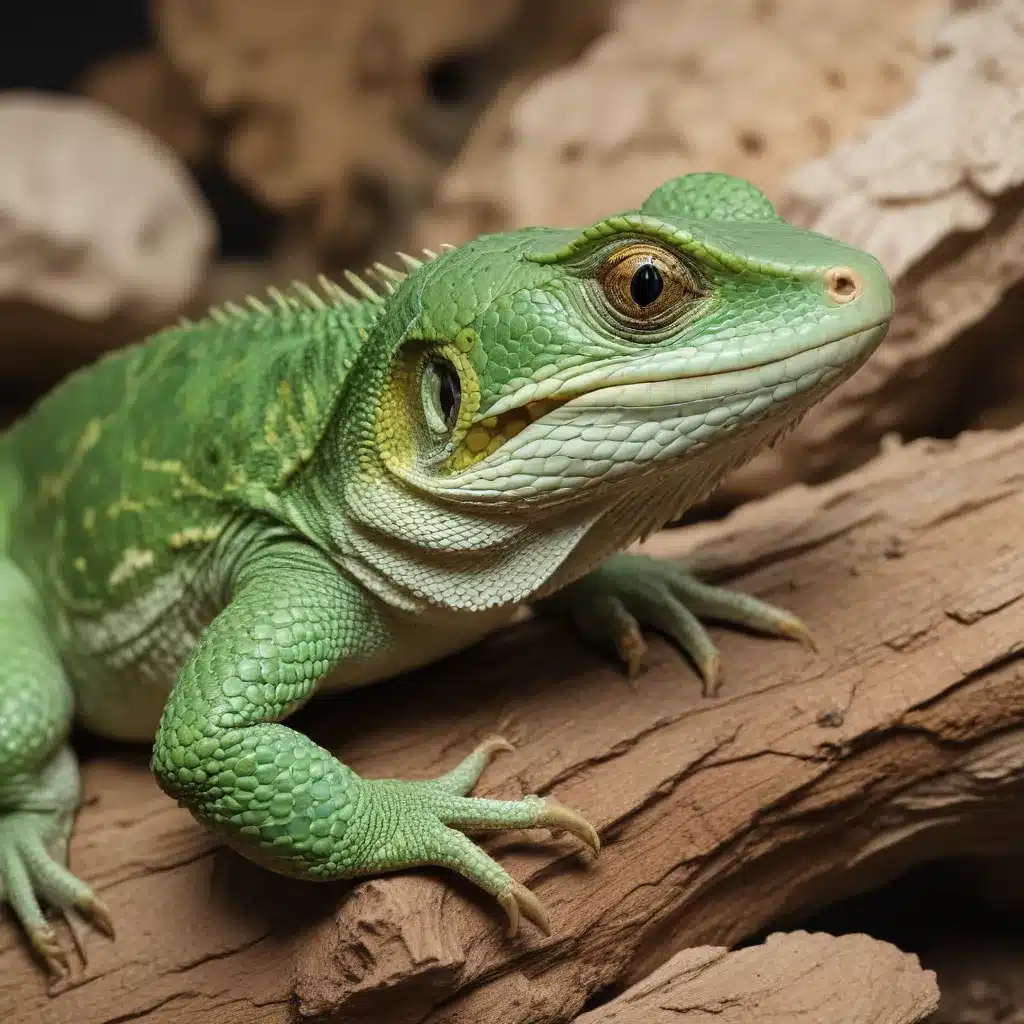
Understanding Reptile Nutritional Requirements
Properly caring for exotic reptiles requires a deep understanding of their unique dietary needs. Unlike domesticated pets like dogs and cats, reptiles have highly specialized food requirements that can vary significantly between species. Reptile enthusiasts and breeders must carefully research the specific nutritional needs of each reptile they care for, as imbalanced or inappropriate diets can lead to severe health issues.
One of the key considerations in reptile nutrition is the concept of ectothermy. Reptiles, as ectothermic or “cold-blooded” animals, rely on external sources of heat to regulate their body temperature and metabolic processes. This means that their dietary needs are closely tied to their environmental conditions and activity levels. For example, a basking lizard species may require a diet higher in protein to fuel its active lifestyle, while a more sedentary turtle species may thrive on a plant-based diet.
Exotic reptile owners must also be aware of the importance of calcium and vitamin supplementation for their reptiles. Many reptiles, particularly those kept in captivity, are prone to metabolic bone disease if they do not receive adequate calcium and vitamin D3 in their diet. Specialized reptile lighting and carefully formulated supplements are often necessary to ensure proper nutrient balance.
Tailoring Diets to Specific Reptile Species
When it comes to crafting specialized diets for reptiles, a one-size-fits-all approach simply doesn’t work. Each species has its own unique dietary requirements, and responsible reptile owners must be prepared to adjust their care practices accordingly.
Herbivorous Reptiles
Herbivorous reptiles, such as certain species of iguanas, tortoises, and tegus, require a diet primarily composed of leafy greens, vegetables, and select fruits. These reptiles have evolved to efficiently digest plant matter, and their digestive systems are not well-suited for processing large amounts of protein or fat. Careful selection of appropriate produce, as well as the incorporation of fiber-rich foods, is essential for maintaining the health of herbivorous reptiles.
Carnivorous Reptiles
In contrast, carnivorous reptiles like snakes, monitor lizards, and crocodilians have a greater need for animal-based proteins to support their predatory lifestyle. These reptiles may thrive on a diet of appropriately sized rodents, birds, fish, or even other reptiles, depending on the species. Responsible reptile owners must ensure that any prey items are humanely sourced and free of contaminants.
Omnivorous Reptiles
Some reptile species, such as certain species of skinks, anoles, and certain species of geckos, are considered omnivores. These reptiles require a balanced diet that includes both plant and animal-based components. Crafting a suitable menu for omnivorous reptiles often requires a delicate balance, as their dietary needs can vary significantly throughout their lifespan and between individuals.
Breeding and Reproductive Considerations
Reptile breeding is a complex and nuanced endeavor, with specific nutritional requirements for both male and female breeders, as well as for the developing offspring. Proper nutrition is crucial for supporting reproductive health, egg or live-young development, and the overall well-being of the breeding colony.
Female Breeders
Female reptile breeders require a diet that is higher in calcium, protein, and fat to support the energy-intensive process of egg production. This may involve supplementing their regular diet with specialized calcium and vitamin supplements, as well as offering prey items that are particularly nutrient-dense.
Male Breeders
Male reptile breeders also have unique dietary needs, as they must maintain optimal physical condition and sperm quality to successfully reproduce. A diet rich in protein and essential vitamins and minerals is often recommended for male breeders to ensure their reproductive success.
Hatchlings and Juveniles
Hatchling and juvenile reptiles have different nutritional requirements compared to their adult counterparts, as they are focused on rapid growth and development. Carefully formulated diets that provide the appropriate balance of nutrients, as well as the right-sized food items, are crucial for the proper growth and maturation of young reptiles.
Legal Considerations for Exotic Reptile Ownership and Sales
Responsible reptile ownership and breeding requires a thorough understanding of the legal landscape surrounding the possession, sale, and transportation of exotic reptile species. Reptile enthusiasts and breeders must be aware of federal, state, and local regulations that may restrict or regulate the keeping and breeding of certain reptile species.
Federal Regulations
At the federal level, the Endangered Species Act (ESA) and the Convention on International Trade in Endangered Species of Wild Fauna and Flora (CITES) provide a framework for regulating the import, export, and interstate commerce of protected reptile species. Reptile owners and breeders must ensure that any reptiles in their possession are legally obtained and that they adhere to the reporting and permitting requirements outlined in these regulations.
State and Local Regulations
In addition to federal laws, individual states and local municipalities may have their own set of regulations governing the ownership and sale of exotic reptiles. These can include restrictions on specific species, requirements for permits or licenses, and guidelines for the proper housing and care of reptiles. Responsible reptile enthusiasts must research and comply with all applicable state and local laws in their area.
Ethical Considerations
Beyond the legal requirements, ethical considerations should also guide the practices of reptile owners and breeders. Ensuring the proper care and welfare of the animals in their possession, as well as responsible breeding practices that prioritize the health and genetic diversity of the species, are essential for maintaining the long-term sustainability of the exotic reptile trade.
Conclusion
Crafting specialized diets for reptile species with unique needs requires a deep understanding of reptile nutrition, breeding considerations, and the legal landscape surrounding exotic reptile ownership and sales. Responsible reptile enthusiasts and breeders must be willing to invest the time and resources necessary to ensure the health and well-being of the animals in their care, while also adhering to all relevant laws and ethical guidelines. By prioritizing the unique dietary requirements of each reptile species, reptile owners can help to promote the long-term sustainability of the exotic reptile trade and contribute to the overall conservation of these fascinating creatures.


